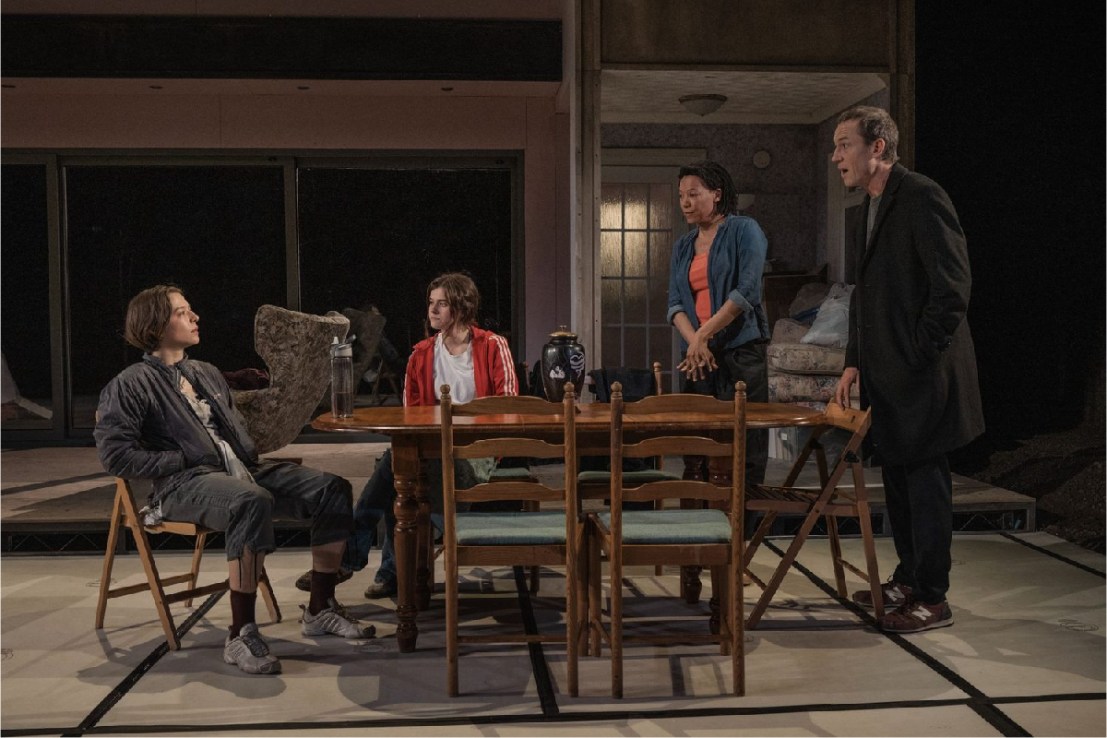The Other Place: Life is terrible, the play!
Greek tragedies revel in stories of rape and incest and trauma and abuse but we’re at least partly shielded from these horrors by 2000 years of distance and the prism of epic heroes and demigods. Transplant those same themes into a modern family home and, well, it hits different. The Other Place is playwright Alexander [...]


Greek tragedies revel in stories of rape and incest and trauma and abuse but we’re at least partly shielded from these horrors by 2000 years of distance and the prism of epic heroes and demigods. Transplant those same themes into a modern family home and, well, it hits different.
The Other Place is playwright Alexander Zeldin’s reimagining of Antigone, turning the fable about power struggles between kings and princesses into a harrowing kitchen sink drama that delivers its terrible message with such precision it elicited shocked gasps from the National Theatre audience.
The play charts a night in the life of a complex, knotty family who are gathering to finally scatter the ashes of a man who had taken his own life several years prior. It unfolds in the cold, sparse, open-plan kitchen of the dead man’s former home, now occupied by his well-to-do brother Chris and his family, with the deceased’s directionless younger daughter Issy lodging with them. The return of estranged elder daughter Annie is the source of not-inconsiderable tension – and for good reason.
Annie is a picture of mental ill-health, a depressive who carries with her a vacuum of sadness so vast it engulfs everything and everyone around her. She is furious that Chris plans to scatter the ashes away from the house, adamant that the spirit of her father must remain as a totem for their unending suffering.
What begins as a pitch-black comedy in which the family attempt to cut through the bleak atmosphere with stories of new-age interior decorators whose philosophy is to “let the room decide” soon becomes an unbearably oppressive examination of generational trauma. There were outbreaks of nervous laughter when Annie, having stolen the ashes from her father’s urn, changes into his old clothes, then sets up a tent in the garden where he hanged himself.
Revelation follows revelation follows revelation, each one more terrible than the last and as the long night stretches on and on and on you end up praying things won’t wind up where you suspect they will (spoilers: they do).
The focal point of the set are the huge floor-to-ceiling windows recently installed in the home, with everyone harping on about “how much light” they will let in. “When it’s finished, life really starts,” says Chris’ wife unconvincingly. But in this home there is no light, just an eternal darkness, the ghosts of the past pressing up against the glass.
The Other place is, I think, a problematic play. Boiling Antigone down to such a degree erases much of its meaning. This isn’t a rumination about power structures and the overbearing nature of the state – it’s just a horrible story about an extremely messed up family for whom there can be no redemption.
It doesn’t help that it’s so well executed. Emma D’Arcy is magnetic as Annie, her gaunt presence filling the theatre with a sense of impending doom. Tobias Menzies and Nina Sosanya are equally adept as Chris and his wife, two people attempting to hold together something that is irretrievably broken. Even the musical interludes provided by Foals singer Yannis Philippakis work perfectly to really set you on edge, both abrasive and haunting.
But to what end? The play closes just as things seem to hit their nadir. There is no hope, no possibility of a coming morning, just a snapshot of life at its very worst. Enjoy turning that around in your mind on the Tube home.



